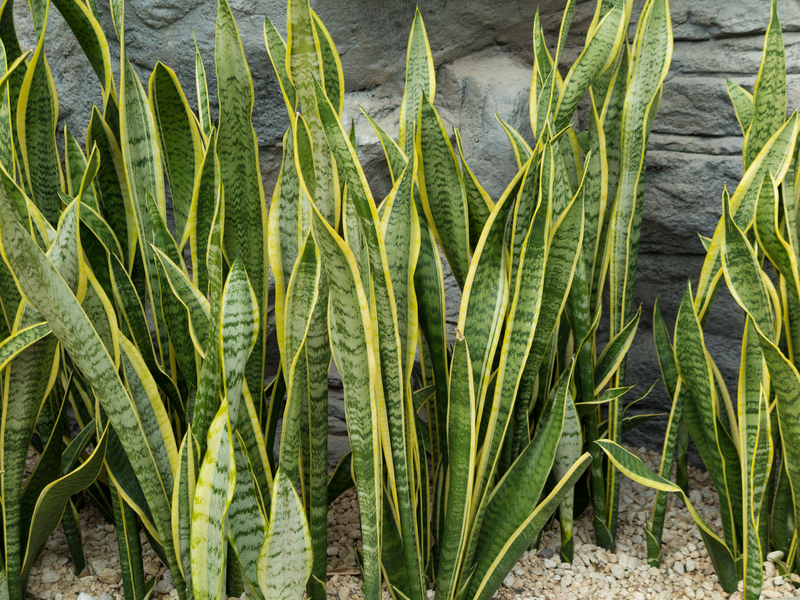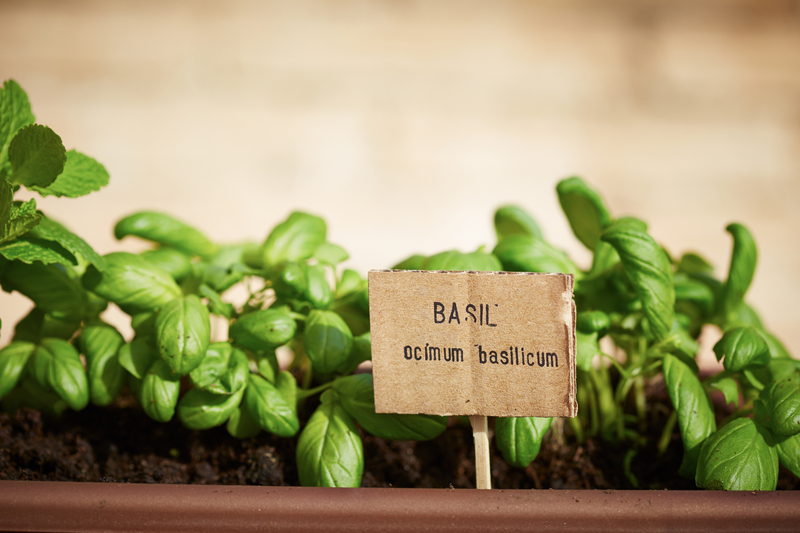Join the Movement: Organic Waste into Fertile, Rich Soil
Posted on 18/06/2025
Join the Movement: Organic Waste into Fertile, Rich Soil
Have you ever wondered what happens to those vegetable peels, coffee grounds, and eggshells that end up in your trash? Instead of becoming part of overflowing landfills, these everyday organic scraps can be transformed into fertile, rich soil that nourishes gardens, improves agricultural productivity, and helps the planet. Welcome to the movement of turning organic waste into fertile soil--a sustainable revolution everyone can join!

Why Turning Organic Waste into Fertile, Rich Soil Matters
Every year, billions of tons of organic waste are discarded globally. This includes food scraps, yard trimmings, and other biodegradable materials. When sent to landfills, organic matter breaks down anaerobically (without oxygen), producing methane--a greenhouse gas far more potent than carbon dioxide.
- Reduces landfill waste: Up to 50% of household waste is organic and can be composted.
- Decreases greenhouse gas emissions: Composting is aerobic, releasing little to no methane.
- Improves soil health: Returned as compost, organic material enriches soil with nutrients and beneficial microbes.
- Promotes sustainability: Closing the loop between food production and waste disposal fosters a circular economy.
By joining the movement to transform organic waste into fertile soil, you help combat climate change, reduce pollution, and close crucial sustainability gaps.
How Does Organic Waste Become Rich Soil?
The process of converting organic waste into lush, productive soil is known as composting. While nature has done this for millions of years on forest floors, we can harness these natural processes at home, in communities, and even on industrial scales.
What Is Composting?
Composting is the controlled decomposition of organic material, turning food scraps and yard waste into a nutrient-rich soil amendment called compost. This dark, crumbly material is teeming with beneficial organisms and essential nutrients for plants.
- Collection: Separate organic matter from other waste.
- Preparation: Chop or shred larger materials to speed up decomposition.
- Composting: Layer "browns" (carbon-rich, like leaves) and "greens" (nitrogen-rich, like kitchen waste).
- Maintenance: Keep the pile moist and aerated by turning it regularly.
- Harvesting: After a few months, the organic waste is transformed into fertile, rich soil ready for use.
Organic waste transformation isn't limited to composting. Other techniques like vermiculture (worm composting), bokashi, and bio-digesters expand what materials can be processed and the speed at which soil is created.
Key Benefits of Turning Organic Waste into Fertile Soil
1. Environmental Impact
- Reduces methane emissions: Composting diverts organics from landfills, reducing potent methane output.
- Sequesters carbon: Healthy soils store more carbon, mitigating climate change.
- Preserves resources: Conserves landfill space and reduces need for synthetic fertilizers.
2. Nutrient-Rich Gardens and Farms
- Improves soil fertility: Adds vital nutrients like nitrogen, phosphorus, and potassium.
- Promotes healthy plant growth: Supports robust root systems and yields stronger crops.
- Enhances moisture retention: Compost-amended soil holds water better, reducing irrigation needs.
3. Community and Economic Advantages
- Reduces municipal waste management costs
- Creates green jobs--from collection to large-scale composting operations
- Builds resilient local food systems by supporting community gardens and organic farming
Getting Started: Turning Household Organic Waste into Fertile Soil
Joining the movement to transform organic waste into fertile soil begins right in your own home. Here's how you can make a positive impact:
Step 1: Collect Organic Waste
- Kitchen scraps: fruit and vegetable peels, coffee grounds, eggshells
- Yard waste: leaves, grass clippings, twigs
- Avoid: meat, dairy, oily foods (unless hot composting or using bokashi)
Step 2: Set Up a Composting System
- Backyard compost pile or bin: Ideal for those with outdoor space
- Worm bin (vermicomposting): Great for apartments or small spaces
- Community composting: Many cities offer drop-off locations or curbside collection
Step 3: Maintain and Harvest
- Turn the pile every few weeks for aeration
- Monitor moisture--keep it moist but not soggy
- After a few months, sift out finished compost to use in your garden or planters
Provide your plants with fertile, nutrient-dense soil, while reducing household waste and helping the environment.
Innovative Approaches to Converting Organic Waste into Fertile Soil
Vermiculture: Worm Power
Did you know that worms can devour half their weight in scraps each day? Vermicomposting uses red wiggler worms to break down food waste, producing prized worm castings--one of the most potent natural fertilizers. It's odor-free and manageable in small indoor spaces!
Bokashi: Fermenting Your Food Scraps
Bokashi is a Japanese technique harnessing specific beneficial microbes to ferment organic waste. Bokashi buckets are compact and efficient, handling even meat and dairy. The process produces a nutrient-rich "tea" and pre-composted material ready for finetuning in soil or a compost bin.
Industrial Composting: Transforming Cities
On a grander scale, municipal and commercial composting facilities tackle tons of organic waste every day. These operations are key for processing biodegradable plastics, food waste from restaurants, and city landscaping debris, producing commercial-grade compost for agriculture and landscaping.
Global Impact: The Larger Movement
Organics recycling is now a top priority in many countries. Policies and community initiatives worldwide encourage diverting food and yard waste from landfills. Here are examples of global momentum:
- European Union: Legislation mandates organics separation and landfill reduction.
- United States: Cities like San Francisco and Seattle have achieved landfill diversion rates exceeding 60% via vigorous composting programs.
- Developing countries: Community composting enhances food security, strengthens local economies, and reduces pollution.
From rural villages to urban centers, the movement is clear--organic waste to fertile, rich soil is essential for a greener, more resilient future.
Myths About Composting and Soil Fertility
- Myth: Compost piles are smelly. Fact: Properly-maintained piles smell earthy and pleasant.
- Myth: Only rural homes can compost. Fact: Apartment dwellers can use vermicompost bins or community drop-offs.
- Myth: Composting is complicated. Fact: With simple guidelines, anyone can contribute to creating fertile soil from kitchen scraps.
Ways to Support and Spread the Movement
- Start composting at home: Even small efforts matter.
- Educate friends and neighbors: Share how easy and rewarding it is to produce rich, organic soil.
- Support local composting initiatives: Participate in community composting or lobby for municipal organics programs.
- Buy products from markets and farms that use compost-enriched soil: Support the virtuous cycle of organic waste recycling.
- Promote awareness on social media: Inspire others by sharing your composting success stories!
Frequently Asked Questions About Organic Waste and Fertile Soil
What can I put in my compost bin?
Acceptable materials (the "greens"): fruit and veggie scraps, coffee grounds, tea bags, eggshells, and grass clippings. For "browns": dried leaves, cardboard, shredded newspaper, and sawdust. Avoid meat, dairy, oils, and pet waste unless using special methods.
How long does it take to make fertile soil from organic waste?
With optimal conditions (proper aeration, balanced browns and greens, adequate moisture), backyard composting takes 2-6 months. Hot composting and industrial methods can speed up the process to just a few weeks.
Can I compost in winter?
Yes! Decomposition slows but does not stop. In cold climates, insulation or covered bins can keep the process going year-round.
What if I don't have space to compost?
Look for community gardens, drop-off sites, or curbside collection programs in your city. Many urban areas now offer convenient solutions to turn your organic waste into fertile, rich soil--no backyard needed.

Get Involved: Join the Organic Waste to Soil Revolution
The transformation of organic waste into fertile soil isn't just for gardeners or environmentalists--it's a movement for everyone. By participating, you:
- Reduce your carbon footprint and landfill contributions
- Help build local food resilience and healthier ecosystems
- Return vital nutrients back to the earth
Together, we can close the loop on our food system, regenerate the land, and ensure a sustainable future. So why wait?
Take the First Step: Start Today and Watch Waste Transform into Abundance
Ready to join the organic waste revolution? Whether at home, in your neighborhood, or citywide, every effort counts. Start separating your kitchen scraps, experiment with composting methods, and watch as your waste becomes fertile, rich soil that feeds gardens, communities, and hope for a cleaner planet.
Join the movement--turn organic waste into fertile soil today!

